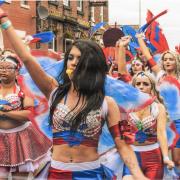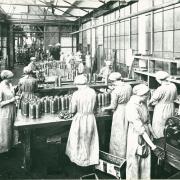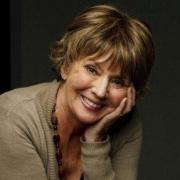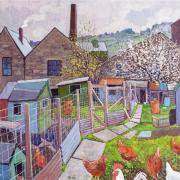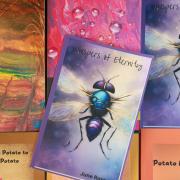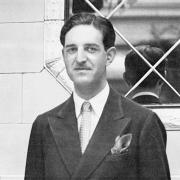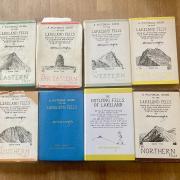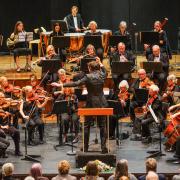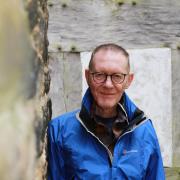The most decorated Olympic athlete in British sports history, Sir Bradley Wiggins from Eccleston is enjoying recounting tales from his eventful career.
Being back amid the action covering one of cycling's ultimate tests at this year's Tour de France proved highly memorable for Sir Bradley Wiggins. The five-time Olympic gold medal winner was in his element across the channel, describing it as an outstanding highlight of his experience in the sport. But he admits he doesn't miss the intensity of preparing for one of the world's most gruelling spectacles.
'Covering the tour made me realise how much I love it - when you're competing it's hard to get excited at the end of a race, so going back to it without all the pressure and watching it as a fan was great,' he says, but adds that he won't be tempted to get back in the racing kit.
'Seeing some of those climbs brought back memories of just how hard it is. While people can make it look easy, it really isn't, especially when you see guys getting taken out of the peloton, and some of crashes you witness. It can be brutal.
'Cycling is all I have ever known, right back to my school days when I was focusing on riding rather than my lessons,' admits the man who is the UK's most decorated Olympic athlete. But he says that three years ago at the age of 36, it was not a difficult decision to walk away from the sport at a high point, enabling him to focus on raising a young family with his wife Catherine at their home in Eccleston.
His unprecedented back-to-back victories at the Tour de France and London Olympics in 2012 saw cycling in the UK enjoy a significant resurgence that is showing no sign of subsiding. They also led to his knighthood in 2013, which he built upon further at the Rio Olympics with a final gold as part of the winning British team pursuit squad.
Now, he is focusing on a number of projects including sports broadcasting and a nationwide tour of his 'Bradley Wiggins: An Evening With' show which reaches the M&S Bank Arena in Liverpool on October 3. He reflects on his lengthy career, and discusses some of his own heroes who feature in his latest book, Icons, who have proved an inspiration along the way.
As he explains, another key area that's now close to his heart is supporting the next generation of potential stars of the sport.
'If there's a legacy from what I have done it's with helping young people develop an interest in cycling and getting out there on bikes,' he says. 'For many kids there's a lot that keeps them indoors, so one of the great things about cycling is that it's something you can do as a family and get outdoors - you can't go out and play rugby as a family,' says the former Olympian, who has worked on a developing series of bikes for children.
His own challenging upbringing meant his was far from a case of being an overnight success. He was born in Ghent, Belgium, but his mother soon moved to London after Bradley's father, who was also a cyclist, parted from the family and had no involvement with his son's upbringing.
'In a weird way, my father is still my hero. I've kept two of his riding jerseys, though I detested the man, as he left us when I was just a baby. But my mum still glorified him, so if it hadn't been for her, then I wouldn't have had my career.'
As a 12-year-old he took up cycling on the same south London circuit his dad had once ridden, but, he says, kids from Kilburn were not expected to achieve any great mark in society.
'I was asked by a teacher when I was 12 what I wanted to do with my life and I said I wanted to wear a winner's jersey at the Tour de France, and she just laughed at me,' he says.
Even after winning a bronze medal at his first Olympics at Sydney, there were expectations upon him to go and gain a 'proper job'. That was never going to be a reality though, and he earned his spurs in the early part of his career as a track specialist, before turning to road racing.
From a position of coming fourth in the Tour de France in 2009, observers began to take his credentials as a road-based rider seriously but it was not until joining Team Sky in 2010 (recently re-named Ineos under new sponsors), which heralded his most consistent era of success.
While he rates the elite set-up as 'very businesslike and unsustainable' in regard to managing his family life, he accepts those years led to his biggest victories that gave him a major international profile.
'I know it does mean a lot to other people that I won the tour and Olympics in 2012, but I wouldn't be a very good person if those were the things that were the most important to me in my life,' he says.
These subjects and plenty more besides will come under the microscope as he offers up some insights into his eventful career on his audience with UK tour. Expect plenty of memorabilia and anecdotes of racing rivalries that will offer a very personal window into his world.
'I've been enjoying doing these shows as I like to break down perceptions. I feel you never really know someone until you've heard their story properly.'




